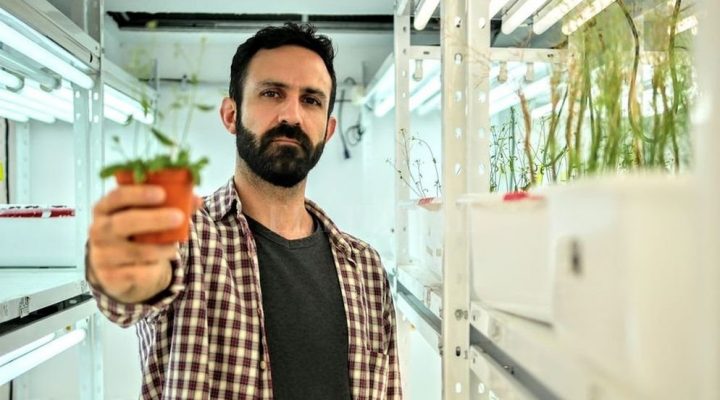INSTITUTIONAL NEWS
CONICET researcher won the UNESCO – Al-Fozan International Prize
The award dedicated to young researchers was given to Federico Ariel, who works at the Instituto de Agrobiotecnología del Litoral.
At the UNESCO headquarters in Paris, the researcher of the National Scientific and Technical Research Council (CONICET) Federico Ariel was awarded in the first edition of the biennial prize, which was established by UNESCO in 2021 in association with the Foundation Al-Fozan from Saudi Arabia. The prize aims at the Promotion of Young Scientists in Science, Technology, Engineering and Mathematics (STEM, in English)
Federico Ariel, who works at the Instituto de Agrobiotecnología del Litoral (IAL, CONICET-UNL) and is a member of the Y-TEC Board of Directors, a joint company between CONICET and YPF, developed pioneering research that deepens the understanding of the role of long non-coding RNA in plants. Replacing harmful synthetic pesticides, these RNA-based technologies will ensure a safer environment for humans and nature.
“This is a recognition of hard work that began many years ago and that I continued in Argentina when I returned as a repatriated scientist through the Raíces Program. We have been working on the biology and biochemistry of RNA in plants. RNA from the pandemic and the development of vaccines became the central molecule of biotechnology in the 21st century and we are applying it to the development of technologies for agriculture to replace synthetic pesticides with information that the plant needs to defend itself . In this sense, last year, based on the positive results we had in the “Science and Technology Against Hunger” program -financed by the MINCyT- we launched a startup called APOLO Biotech, a Technology-Based Company recognized by the CONICET in which we develop RNA-based technologies that are more respectful of the environment and human health. So, the recognition is not only for the scientific results but also for the commitment and the ability to transform it into technologies for the good of humanity”, explains the researcher.
In relation to the award, Federico Ariel expresses: “I felt a lot of emotion, clearly at the time of receiving an award I take stock and in general I come to the same conclusion: Science and technology is a collective project and none of this could make it alone but as a team. That is why I value the work teams of the Institute and the company so much and I share it with my work teams and with collaborators around the world. I am happy for a recognition that is always welcome and helps us to give visibility to what we do”.
Other researchers awarded were: Abdon Atangana (Cameroon); Qiaomei Fu (China); Hesham Omram (Egypt) and Jelena Vladic (Serbia).
As regards the jury, it was made up of Dr. Edna Matta-Camacho, biologist (Colombia) who founded the Tolina STEM educational program; Professor Didier Queloz (Switzerland), who shared the Nobel Prize in Physics with Michel Mayor in 2019 for the discovery of the first exoplanet; and Dr. Fadji Zaouna Maina (Niger), NASA scientist.
